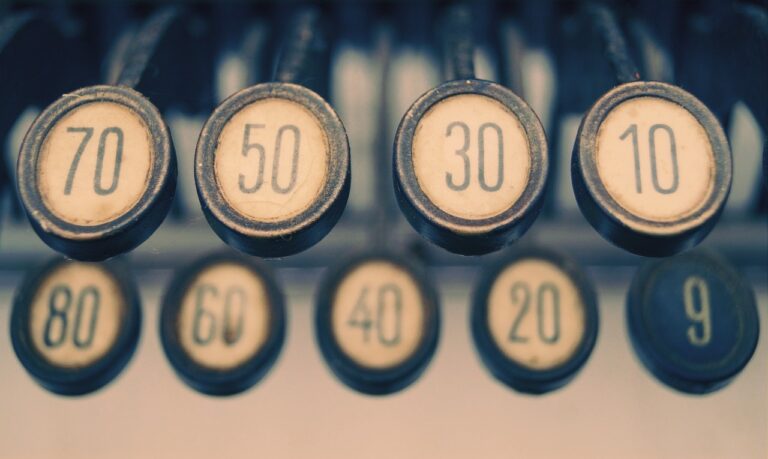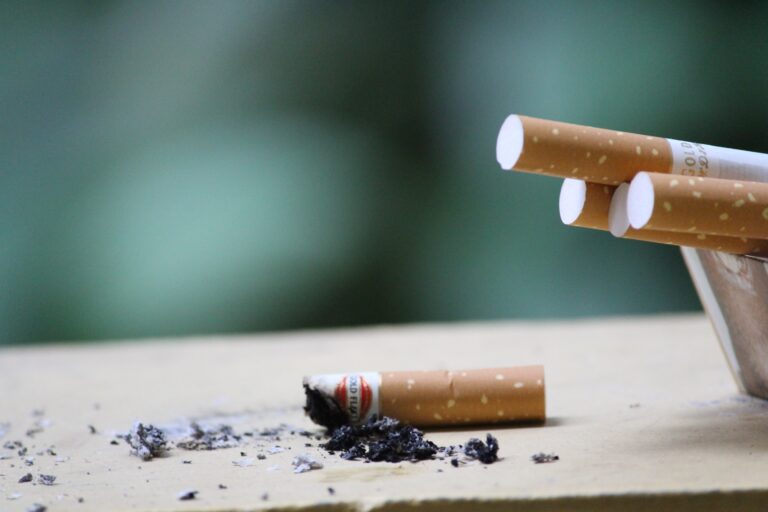
Health and Medicine الصحة والطب
“.١. اشرح لي معنى “ان تكون بصحة جيدة
٢. ايش هو تعريف الصحة بالنسبة لك وهل لها علاقة بالطب؟ ليش؟
٣. ايش هي الأشياء اللي تسويها عشان تبقى بصحة جيدة
٤. ايش هو النظام الغذائي العادي في ثقافتك؟
٥. قول لي كل شيء اكلته في اليومين الماضيين والأوقات اللي أكلت فيها
٦. ايش هي الأكلات اللي تعزز الصحة؟ ايش هي الأكلات اللي ما تعزز الصحة؟
٧. ايش هو متوسط العمر المتوقع في بلدك للرجال؟ للنساء؟
٨. كم معدل وفيات الرضع؟ وكيف ممكن يفكرون الناس لتحسين هذا الوضع؟
٩. ايش هي بعض المشاكل الصحية الشائعة اللي يواجهها الناس؟
١٠. هل داء السكري (النوع الأول والثاني) واسع الانتشار في بلدك؟ كيف عادة يتعامل معه الناس؟
١١. هل الزهايمر واسع الانتشار في بلدك؟ كيف عادة يتعامل معه الناس؟
١٢. هل ضغط الدم المرتفع واسع الانتشار في بلدك؟ كيف عادة يتعامل معه الناس؟
١٣. هل الحساسيات واسعة الانتشار في بلدك؟ من ايش؟ كيف عادة تتعامل معها الناس؟
١٤. هل اضطرابات حديثي الولادة واسعة الانتشار في بلدك؟ كيف عادة تتعامل معها الناس؟
١٥. هل السكتات الدماغية واسعة الانتشار في بلدك؟ كيف عادة تتعامل معها الناس؟
١٦. هل اضطرابات الأكل واسعة الانتشار في بلدك؟ كيف عادة تتعامل معها الناس؟
١٧. هل مرض القلب واسع الانتشار في بلدك؟ كيف عادة تتعامل معها الناس؟
١٨. هل زيادة الوزن أو البدانة واسعة الانتشار في بلدك؟ كيف عادة تتعامل معها الناس؟
١٩. في بلدك هل في حملات صحية كثيرة؟ عن أي المواضيع؟ (داء السكر، سرطان الثدي، الانفلونزا، تبرعات بالدم، إلخ)
٢٠. في رايك ايش دور الحكومة في تعزيز الصحة والوقاية من الأمراض؟
٢١. في ثقافتك هل الناس تعتبر المرض نتيجة الظواهر العلمية الطبيعية، أو ظواهر روحية أو خارقة للعادة؟ شو رايك؟
٢٢. في رايك لأي درجة العقل يؤثر على الجسم والصحة؟
٢٣. شنو رأي الناس في بلدك عن الطب التقليدي؟
٢٤. قول لي عن بعض العلاجات التقليدية المستخدمة في ثقافتك (مثلا الحجامة أو الزيوت العطرية أو عمل جرح في الجسم أو الوخز بالإبر أو العلاجات العشبية). حق ايش مستخدمة؟
٢٥. أي أنواع من العلاجات التقليدية تحب تستخدمها؟
٢٦. ايش هي سلبيات وإيجابيات الطب التقليدي؟
٢٧. ايش هي سلبيات وإيجابيات الطب الحديث؟
٢٨. ايش الرخص اللي يحتاجونها الأطباء عشان يمارسون الطب؟
٢٩. فيه أشخاص معروفين بأنهم معالجين (أو شيوخ) كيف يحصلون على هذه السمعة؟ ايش مدى احترامهم؟
٣٠. هل في أماكن تعرفها مشهورة بالعلاج الغير طبي وفيها طقوس معينة؟
٣١. ايش هي الأدوية المتاحة دون وصفة طبية، وأي الأنواع من الأدوية لازم تكون بوصفة؟
٣٢. هل في كثير أسواق غير مصرّح فيها تبيع أدوية بدون وصفة؟ ايش الأدوية وليش؟
٣٣. ايش الأدوية الممنوعة في بلدك؟ ليش؟
٣٤. ايش هي الأشياء اللي ممكن الناس تلبسها لإيمانهم أنها تؤثر على الصحة؟ (مثلا سوارة خيط، قلادة شكل العين، الخرز، إلخ) ايش معنى هذا، وايش الأثر المعتقد إذا ينشال؟
٣٥. هل هو شيء معتاد انك تأخذ فيتامينات؟ من ياخذها وحق ايش؟
٣٦. شو رايك شخصيا عن أنك تأخذ أدوية؟
٣٧. في أي الحالات ممكن شخص يرفض رعاية صحية؟
٣٨. لو انت مريض، ايش راح تسوي عشان تحمي اللي حولك؟ (مثلا لبس الكمامة أو الغياب من الشغل أو الدراسة أو الحفلات، إلخ)
٣٩. خبرني لما تمرض في الشغل او اثناء الدراسة، هل مهم تقدم عذر طبي؟ كم مدة الإجازة المرضية اللي تحصل عليها؟
٤٠. كيف نظام الرعاية الصحية في بلدك؟
٤١. ايش سعر الرعاية الصحية في بلدك؟ وهل تتغير على حسب وظيفتك أو موقعك؟
٤٢. هل التأمين الصحي مستخدم في بلدك؟ كيف يشتغل؟ شنو رايك فيه؟
٤٣. كيف تلقى طبيب أو مستشفى جديد؟
٤٤. ايش صفات مقدم الرعاية الصحية الجيد؟ (طبيب أو ممرض، إلخ)
٤٥. في بلدك هل هو متوقع من الأطباء يتكلمون مع المريض ويسألونه عن رأيه، أو هل المتوقع أن المريض يسمع وما يسأل؟
٤٦. ايش هو نوع الاتصال السائد بين الطبيب ومريضه؟ بين الممرض ومريضه؟
٤٧. هل الفحوصات الطبية المنتظمة شائعة في بلدك؟
٤٨. ايش التطعيمات المعتادة في بلدك؟
٤٩. في اتخاذ القرارات المتعلقة بالصحة، هل يميل الفرد أو أهله إلى إبداء رأي أكبر؟
٥٠. كيف ينظر الناس إلى المرض العقلي في ثقافتك؟ هل يُنظر إليها على أنها مخزية وخصوصية أكثر، أم أنه من المقبول مناقشتها والانفتاح بشأنها؟
٥١. هل التبرع بالأعضاء أمر شائع في بلدك؟
٥٢. إذا كنت تعاني من مرض أو مشكلة طبية، ممكن تجاوب على هذه الأسئلة إذا كنت مرتاح
أ/ ايش تسمّي مرضك؟
ب/ متى بدأ مرضك؟
ج/ ليش تعتقد أن مرضك بدأ؟
د/ ايش يسوي مرضك؛ كيف يعمل؟
هـ/ ايش مدى خطورة مرضك؟
و/ ايش أكثر شيء تخاف منه حول مرضك؟
ز/ ايش هي المشاكل الرئيسية اللي سببها مرضك؟
ح/ هل عندك أي أفكار حول العلاج اللي لازم تأخذه؟
٥٣. كيف تبدو الرعاية الجيدة (في منشأة طبية) بالنسبة لك؟ ايش أنواع الأشياء اللي لو سواها الناس عشانك، راح تحسسك انك تلقيت رعاية جيدة؟
٥٤. في ثقافتك، إذا كان الشخص مصاب بمرض عضال، فهل يتم إخباره عادةً أم يتم إخفاءه؟ ليش؟
٥٥. ايش هي معتقدات وقيم المجتمع حولك المختصة بأحداث الحياة الكبيرة مثل الولادة، وبلوغ سن البلوغ، وإنجاب الأطفال، وانقطاع الطمث، والشيخوخة، والموت؟
٥٦. ايش يعني الألم بالنسبة لك؟ كيف عادة توصف الألم اللي تشعر فيه؟ مثلا كم تعطيه من ١٠، أو مقارنتها بشيء آخر، إلخ
1. How would you define “being healthy?”
2. How would you personally define health, and does it have a relationship with medicine? Why?
3. What kinds of things help you stay well?
4. What is a typical diet in your culture?
5. Can you tell me everything you’ve eaten over the last two days, and what times you ate?
6. What foods are thought to promote health? What foods are thought to be unhealthy?
7. What is the life expectancy in your country for men? For women?
8. What’s the infant mortality rate? What do people say are the things that could improve this?
9. What are some common health problems people face?
10. Is diabetes (type I or II) very common in your country? How do people usually deal with it?
11. Is Alzheimer’s or dementia very common in your country? How do people usually deal with it?
12. Is high blood pressure very common in your country? How do people usually deal with it?
13. Are allergies very common in your country? To what? How do people usually deal with them?
14. Are neonatal disorders very common in your country? How do people usually deal with them?
15. Are strokes very common in your country? How do people usually deal with them?
16. Are eating disorders very common in your country? How do people usually deal with them?
17. Is heart disease very common in your country? How do people usually deal with it?
18. Is overweightness or obesity very common in your country? How do people usually deal with it?
19. Does your country have many health campaigns? About what issues? (diabetes, breast cancer, the flu, blood donations, etc.)
20. What do you think is the government’s responsibility to promote health and prevent disease?
21. In your culture, are illnesses viewed as being the result of natural scientific phenomena or supernatural and spiritual phenomena? What are your thoughts?
22. In your opinion, to what extent can our mind affect our body and our health?
23. How is traditional medicine viewed in your country?
24. Tell me about some traditional medicine used in your culture. (i.e. cupping, essential oils, cutting, acupuncture, herbal remedies, etc.) What are they used for?
25. What types of traditional medicine or home remedies do you like to use?
26. What are the advantages and disadvantages of traditional medicine?
27. What are the advantages and disadvantages of modern medicine?
28. What kinds of licenses do those who practice medicine need?
29. Are certain people known for being healers (or shamans or medicine men)? How do they get this reputation? How respected are they?
30. Are there certain (non-medical) places that are known that you can go there and be healed? What do you have to do in those places to be healed?
31. What types of medicines are available over-the-counter, and what types are prescription only?
32. Is there much of a black market for prescription drugs? Which ones, and why?
33. Which medicines are banned in your country, and why?
34. What kinds of things might people wear that they believe affect their health? (i.e. cloth string or bracelet, evil eye, charms, medicine bags, etc.) How is this meaningful, and what is the believed effect if it is removed?
35. Is vitamin-taking common? Who takes them, and for what?
36. How do you personally feel about taking medicines?
37. In what situations that you know of would a person refuse to receive healthcare?
38. If someone is sick, what kinds of things does society expect of him in order to protect others? (i.e. wearing a mask, staying home from work, school, or parties, etc.
39. How do sick days at work or school work? Do you have to provide a doctor’s note? How many sick days do you get?
40. How does the healthcare system work in your country?
41. What is the cost of healthcare, and how does it change depending on your job or location?
42. Is health insurance used in your country? How does it work? What is your opinion on it?
43. How do you go about finding a good hospital or doctor?
44. What are the characteristics of a good healthcare provider? (doctor, nurse, etc.)
45. In your country, are doctors expected to have a conversation with and get the opinion of the patient, or are they expected to give advice and not be questioned?
45. What kind of communication is typical between a doctor and his patient? Between a nurse and his patient?
46. Are regular doctor check-ups common in your country?
47. What vaccinations are common in your country?
48. In decision-making around health decisions, does the individual or their family tend to have more say?
49. How is mental illness viewed in your culture? 50. Is it viewed as more shameful and private, or okay to be discussed and be open about?
51. Is organ donation common in your country?
52. If you have an illness or medical problem, you can answer these questions if you are comfortable:
(a) What do you call your illness?
(b) When did your illness begin?
(c) Why do you think your illness started?
(d) What does your sickness do; how does it work?
(e) How severe is your illness?
(f) What do you fear most about your illness?
(g) What are the major problems your illness has caused?
(h) Do you have any ideas about what treatment you should receive?
53. What does good care (in a medical facility) look like to you? What kinds of things, if people did them for you, would lead you to feel like you’d received good care?
54. In your culture, if a person has a terminal disease, is he usually told or is it kept hidden? Why is this?
55. What beliefs and values surround big life events like birth, hitting puberty, having children, menopause, aging, and death?
56. What does pain mean to you? How do you usually describe pain you have? i.e. in numerical terms, or comparing it to something else, etc.




